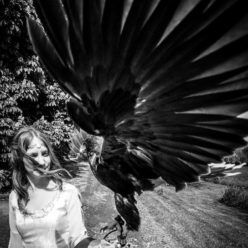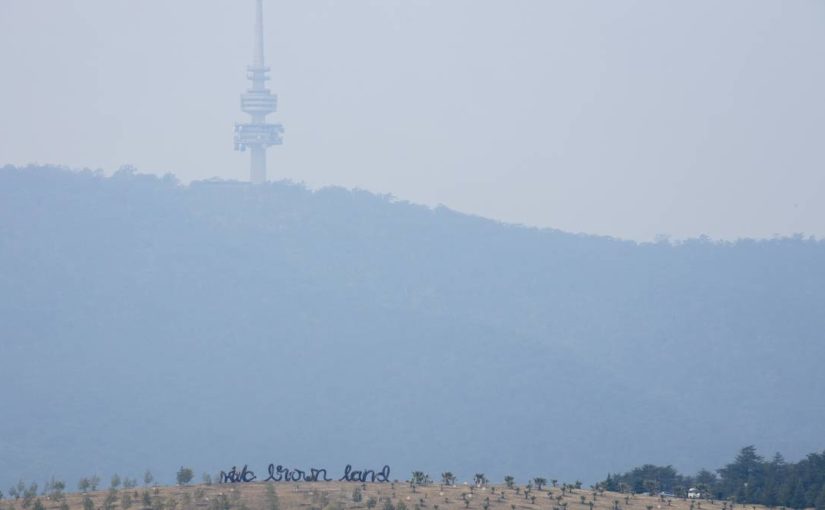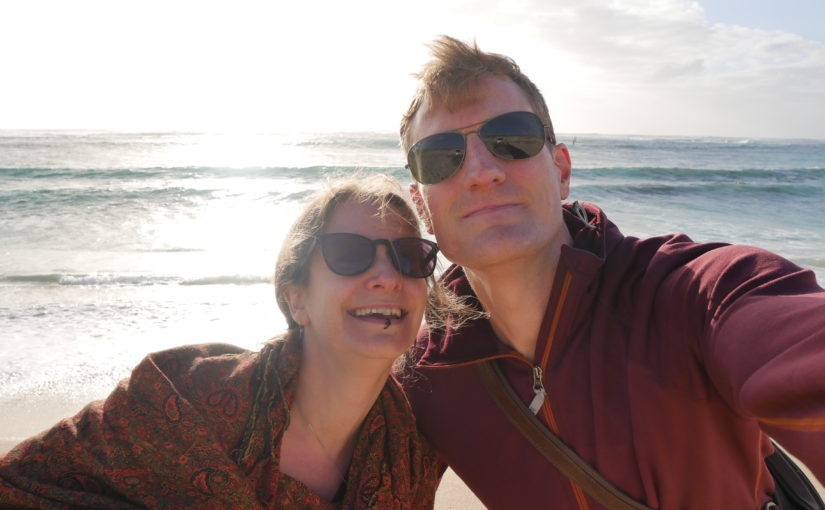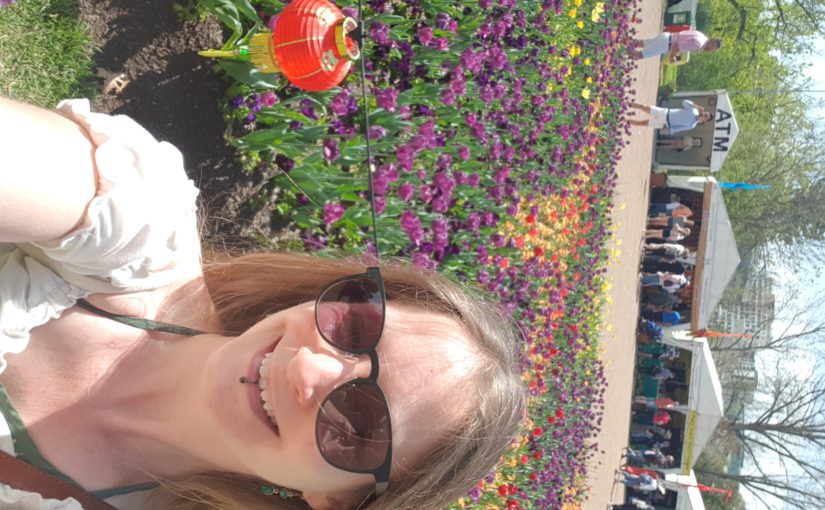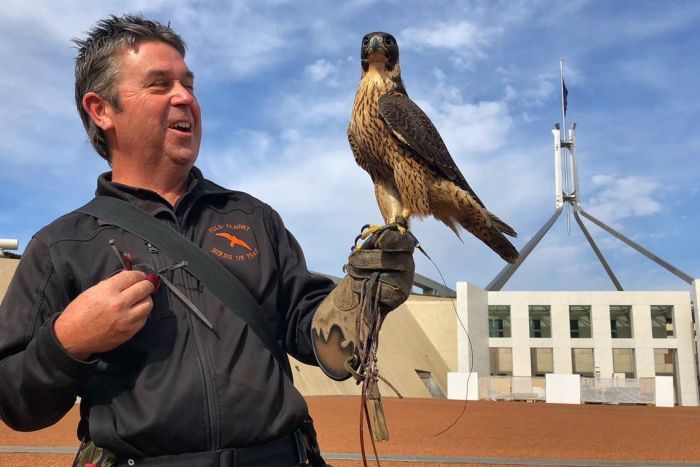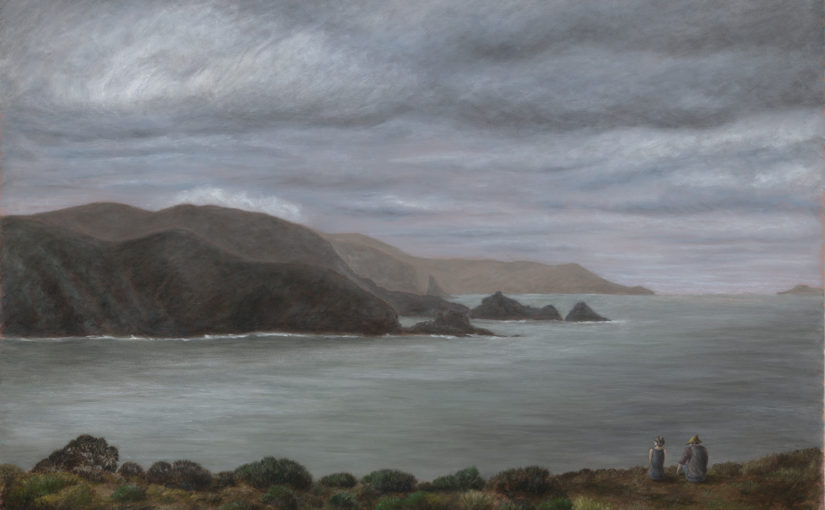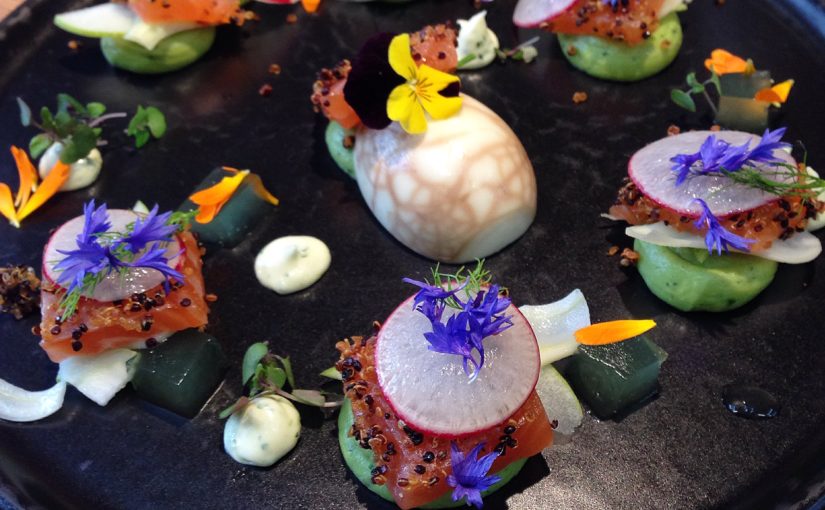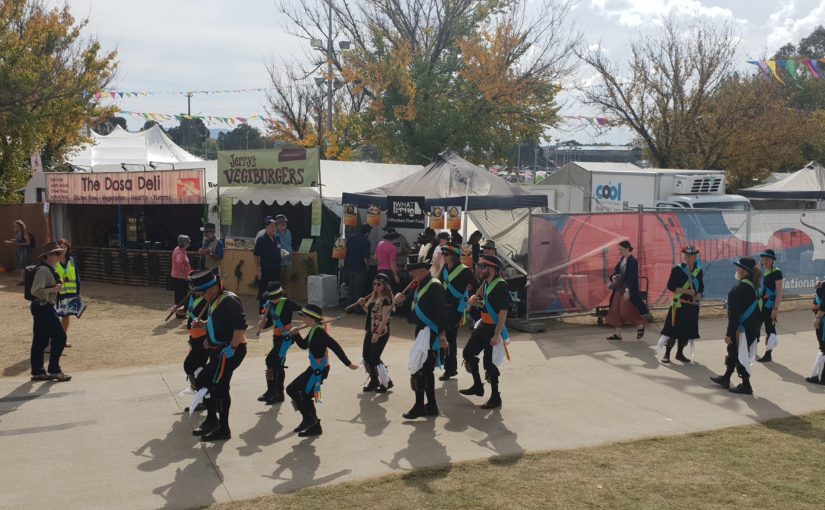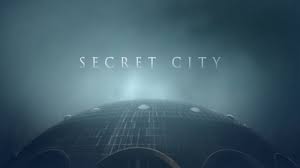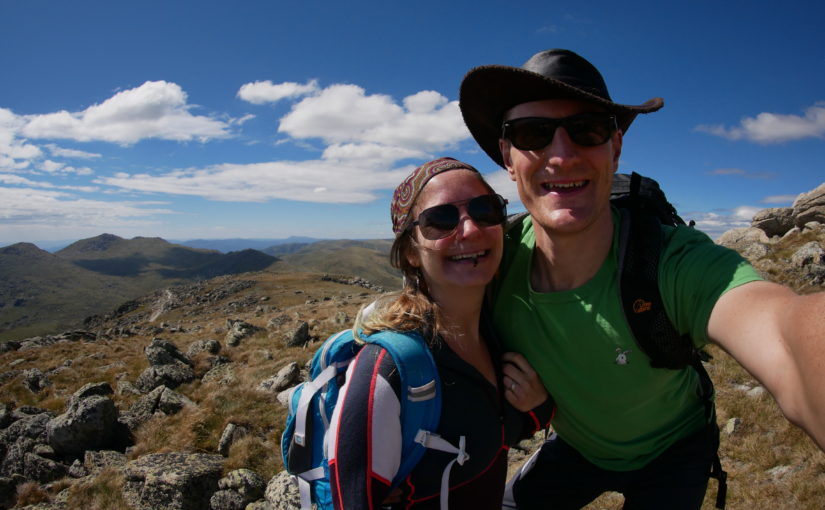Well it’s the time of year. In between rabid amounts of binging, be it at the table, or in your slippers in front of the telly, humans get reflective this time of year. Like double headed Janus, for which this month is named, we look back at the past twelve months, reflect on how our lives have changed, who or what has come into it or left it, and also look forward to how we will change as the new year starts. And I reckon with all of that, some of you could have been prompted by this blog to remember that, ya know, it’s me, ME; I’m not in your daily life anymore! But something tells me that, beyond the usual cards and yearly reflections, your old pal Chris and that fact that she moved to the other end of the world might be a little further forward in your minds right now.
Because this Christmas, Australia is on fucking fire.
So, Brits, I’m here to give you the inside story, replete with metaphor, sweary outrage and my usual wit. But this is not a news article, Chris blogging from the hot spots (ah shit, poor taste), this is an accumulation of impressions from a British person, living through her first fire season.
Right, so to first demonstrate my true assimilation into a Canberran, it’s not normally fucken like this. Yesterday was our Aussieversary; the day we arrived here last year. I don’t know if it was jet lag, the self-absorption of the homeless or furniture tetras, but I sure wasn’t aware of loads of bush fires this time last year, even though it was, proverbially, hot as shit.
So I’ve spent my year learning. I’ve had lovely walks in Tidbinbilla, reading all the information about how alpine ash and eucalyptus need fire every fifty or so years to promote regrowth. Eucalypts produce new branch buds along the length of the trunk, deeply set under the bark, and are protected from fire which then clears that bark and stimulates those new buds. It also clears a bit of the vegetative competition, enriches the soil and opens up more of the canopy to light. Bloody fascinating right? Back in July I got to scribe an interview for a role in fire ecology. The panellists and applicants all had PhDs and were practicing firies (that’s a firefighter, chaps) and I learned a hell of a lot more then about how local governments balance mitigating fire risk against conservation, and how animals interact with landscapes before and after fires in changing ways over time and regrowth stages. I learned about ‘back burning.’ What the fuck is that? Well apparently conservationists set things on fire on purpose! Indigenous Australians were doing it for millennia. To a Brit, this is unconceivable, we’re all about fire suppression, but controlled careful burns during winter – taking into account flowering seasons of pretty field orchids and hollow bearing trees where native fauna nest – reduce dry fuel and hazards for summer bushfires. Later that week I saw a bit of hazard reduction burning on Black Mountain from the balcony. Shit shit shit I thought, Black Mountain’s on fire, what do I do, I’m supposed to call someone. Happily, my local government has a handy app where you can look up planned burns, and it was just that; planned and contained. And also through strolling the exhibitions of the National Museum of Australia, I’ve come to see some relevance of these burns when faced with a string of ‘blacks’ – Black Friday; Victoria 1939, Black Saturday; Victoria 2009, Black Tuesday: Tasmania 1967. And the 2003 Canberra bush fires where the fire came right up and into the outer suburbs within the living memory of all my contemporaries who were all evacuated, and still wince on hot dry days and run around their gardens clearing gutters, getting rid of dry dead leaves and making sure the areas around their houses are clear. Even now, Tidbinbilla has a plaque commemorating ‘Lucky,’ a Tidbo koala who survived those bush fires and slipped peacefully from a koala nap into the Big Sleep, five years later.
So I get it, Australia is ecologically evolved to incorporate fires; to survive and benefit from them. And I’m learning about …ehh… Aussie spirit, when it comes to gritting your teeth and living with fire as a reality. People have insurance for it (hopefully it’s more effective than the U.K.’s during floods), families have fire plans; they spend their summer with all their essential docs and a travel bag by the front door in a cruel parody of expectant parents. People seem to live rather nonchalantly with the idea that their house could be destroyed, and they’ll just have to build a new one.
Then came spring. We last had rain of any significance on 16th October. Since then, five-minute dribbles on four occasions. Everything was green and beautiful, and Floriade was glorious. Do you remember how lovely I told you it was?
But still no rain. And raising temperatures. The bush fire outside Sydney raged and covered Sydney harbour with smoke and continued to swell. When the wind blew from the sea, it cleared it away, and right over the mountains to us. We’ve lived with smoke in Canberra since the middle of November and I’ve been routinely using it as an excuse to not go running. (Oh, well, you see…) I went on a lovely writing retreat near the coast on the 29th November, and I can tell you, the sunsets were cracking. We stood with wine on the veranda to admire it…with a background discomfort like the characters in Don DeLillo’s White Noise admiring the sunsets presaging the end of the world. Koalas don’t move very fast.
Ok, and then I found out that Rural Fire Service – those heroes you’ve heard about that are on the ground, fighting fires, saving koalas and people alike, banging on doors in the middle of the night and telling people to get out quick, clearing roads, dodging falling trees – aren’t fucking paid! To a man and a woman, they’re volunteers. Voluntarily putting their lives at risk, with no compensation, no pay, no pension, no provision for families if killed in action like every other goddam service in which a person is required to risk their lives. And often, having to fork out themselves if they need to refuel the fire truck, issued only one set of kit that they are wearing daily, with sometimes ineffective breathing apparatus and not enough water. Time off work to fight fires is granted, but not paid.
I need to take a deep breath here before I literally explode with righteous indignation and exclamation marks, because if you combine here the deep knowledge, understanding and experience Australia has with fire because it is so much part of the environment, with the obvious conclusion that fire-fighting is therefore an essential service like, well, being a doctor, or a teacher, or a policeman, and they also risk their lives…how dare you not fucken pay them?!?! There, see, punctuation explosion. And it is questioned by the media and the Prime Minister that volunteers want to be there, and if you pay them, there’s an argument for paying all volunteers and that removes people’s right to give charity. But let’s not go into people’s further rights not to need charity.
So in the middle of this choking shit storm, Beck, Ted and the Screwben arrived for Christmas. And this is what this blog should have been about – a comprehensive list of lovely days, and it was, but always in the shadow and smoke of fire.
For a start, Christmas was very nearly ruined. Since November we’d been watching the south coast fire get closer to Pebbly Beach where we’d booked to go camping for two nights back in January. The King’s highway was closed, then open, then closed for backburning, then open, then closed again. Eventually it was fully confirmed, Pebbly Beach had gone on holidays to Destination Fucked and we’d have to find somewhere else to escape Canberra’s smoke and forty-degree temperatures. We were lucky. We found a cabin in a holiday park in Moruya Heads, on the coast. We’d have to drive the long way for four hours, but we’d break it up. So Christmas was saved, and we balanced our days carefully with indoor, air conditioned activities, risking smoke occasionally to go outside in the morning, soaking up Commonwealth Park and the Botanic Gardens on clear sunny days, and always back by three to make sure we spent the least time in hellish heat. We worried about Reuben a lot, he’s nine months – is he getting enough fluids? will he cope with only a bit of smoke? And always staring anxiously out the window at Black Mountain to see how grey it was to judge the smoke, and every evening we’d watch it vanish beneath a suffocating shroud. No glib metaphor here.
But Christmas was great, we drove over Brown mountain, we found cool, clear air, we splashed in the sea, we drank some wine and beer, we played in the pool with the Reubinator, we ate a lot, then returned on Boxing day, when smoke set in.
Just as we’d got back to Canberra, everywhere we drove through caught on fire.
Fires joined up and became the size of Norfolk. They raced through and destroyed whole towns in half an hour. Unpredictable winds had them travelling hideous speeds in random directions, and places that had never suffered bushfires in living memory were razed. Small villages were completely destroyed; the whole of South Coast tourism economy has disintegrated and tourists who would normally spend two or three weeks of the summer holidays there, fled. Residents were evacuated. Australia now has a quantity of Internally Displaced Persons comparable with countries in conflict.
And in all this, finding the smoky air a bit bothersome, the Prime Minister fucked off on holiday.
This gave rise to the marvellous #wherethebloodyhellareya? as his office committed blunder after blunder by not telling anyone he’d left the country; then denying that he had; then outright lying, then he eventually came back a day early. He then spent a week painting the bush fires and smoke as cool and normal and that only young people are upset because they’ve not seen this yet, while seventy-year olds shook their heads, saying never; never like this. Then Victoria’s fires began developing freak new weather patterns called pyrocumulonimbus where the heat is so intense that it changes air pressure several kilometres up creating a storm, in which the rain is evaporated by the fire’s heat long before it gets near the ground and the lightening strikes cause more fires. Wind can blow embers full kilometres ahead of the fire front and spread the fire with sickening speed. Still dear ol’ ScoMo did nothing beyond saying this is definitely nothing to do with climate change, because it’s all very normal.
Then a fire front burst through a holiday camp in Mallacoota which was evacuated to the beach and four THOUSAND people waded into the sea on New Year’s Eve, chased by a hideous wall of red and black. While they sat there in forty-nine degrees heat under a black sky, the Prime Minister had a garden party for the Aussie cricket team, addressing the nation to say we should look to them for resilience in getting through some of these fires.
Now thousands of people are without power, thousands are displaced, thousands have lost their homes, and a hell of a lot of people are still on that beach in Mallacoota. And it’s only 7th January. This is normally when bush fire season begins. It shouldn’t have been raging for two months already. The Aussie PM finally got on board, called in the defence forces to evacuate Mallacoota by ship and has continued pissing people off by forcing residents to shake his hand when he finally turns up to affected communities to try and look like he cares. Hey, and google his cute little video ad about all the stuff he’s done since finishing his holiday; deploying Army reservists to help with the bush fires. It’s peppy. You can find it on twitter and youtube. Too bad he didn’t bother telling the NSW Rural Fire Service Commissioner first.
Then to start 2020, the first two days, then the fifth and sixth were so thick and clogged with smoke that New Years Eve celebrations were cancelled, the Australian Post was cancelled, major services and buildings shut, and Canberra was a ghost town with its people entombed in their houses, trying not to breath while the ghosts and white wreaths of smoky death stalked the streets instead. I’d have written a gothic ghost story about a town covered in smoke, but it’d have been too implausible. There are no fires in Canberra – the nearest is fifty kilometres away, but fires the size of Essex are to our East, West and South and we are reminded daily by breathing in the black, grey and orange deaths of twenty three people and half a million animals.
Four and a half years of laying my own fire, and watching the flames behind the glass stove door while listening to the owls. And now I look at huge Wassailing ceremonies with their flambeaus on black English nights and find myself flinching. My mind fizzes with ‘fire ban,’ ‘embers,’ ‘kindling.’
My relationship with fire may have been changed forever.
